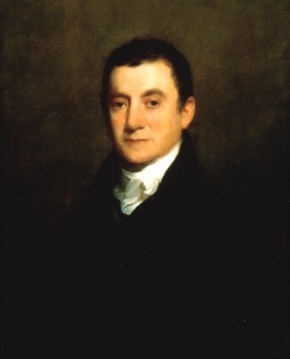You are here
Circuit Court Opinions:
Associate Justice Henry Baldwin, Ex parte Poulson (1835)

Ex parte Poulson, 19 F. Cas. 1205 (C.C.E.D. Pa. 1835) (No. 11,350) [Third Circuit]
In the Judiciary Act of 1789, Congress provided federal courts with the authority to “punish by fine or imprisonment, at the discretion of such courts, all contempts of authority in any cause or hearing before the same.” In 1826, Judge James H. Peck of the U.S. District Court for the District of Missouri issued a contempt charge against an attorney who lost a case before him and then published an article critical of the judge’s decision. The attorney was imprisoned for a day and suspended from the practice of law for eighteen months. Peck was subsequently impeached by the U.S. House of Representatives for abuse of the contempt power. The Senate acquitted him in 1831, following which Congress enacted a new contempt statute which defined judges’ powers more narrowly. The new law specified that the contempt power “shall not be construed to extend to any cases except the misbehaviour of any person or persons in the presence of said courts, or so near thereto as to obstruct the administration of justice.”
In Poulson, Justice Baldwin provided the first interpretation of the new contempt statute. During a trial before Baldwin, the plaintiff’s lawyer moved that Poulson, not a party to the suit, be held in contempt for republishing an article referring to the plaintiff as a “counterfeiter” and a “notorious fellow,” who had “the effrontery to bring a suit.” Baldwin viewed the publication with disfavor, asserting that it was “calculated to produce the worst effect upon the administration of justice.”
Though aggrieved by Poulson’s actions, Baldwin noted that the 1831 law prohibited contempt charges “except in certain cases, of which the present is not one.” The press was “noiseless” and could not literally disrupt court proceedings. No publication, therefore, could be the subject of a contempt charge unless it used threats to intimidate or influence a juror or witness or to impede an officer from carrying out his duties.
Baldwin was not pleased with the limitations imposed upon him by the statute. “The court is disarmed in relation to the press,” he lamented. “[I]t can neither protect itself, or its suitors; libels may be published upon either without stint; the merits of a cause depending for trial or judgment may be discussed at pleasure; anything may be said to jurors through the press, the most willful misrepresentations made of judicial proceedings, and any improper mode of influencing the decisions of causes by out of door influence practiced with impunity.”
Baldwin ended his opinion by asking the press to be cautious when referencing ongoing judicial proceedings in their publications. “[I]t is to be hoped that an appeal to the sense of justice, the magnanimity of the press to abstain from any publication which shall improperly tend to bias the minds of the public, the court, the officers, jurors, or witnesses in any cause while actually under trial before a jury in this court, may not be in vain.”
